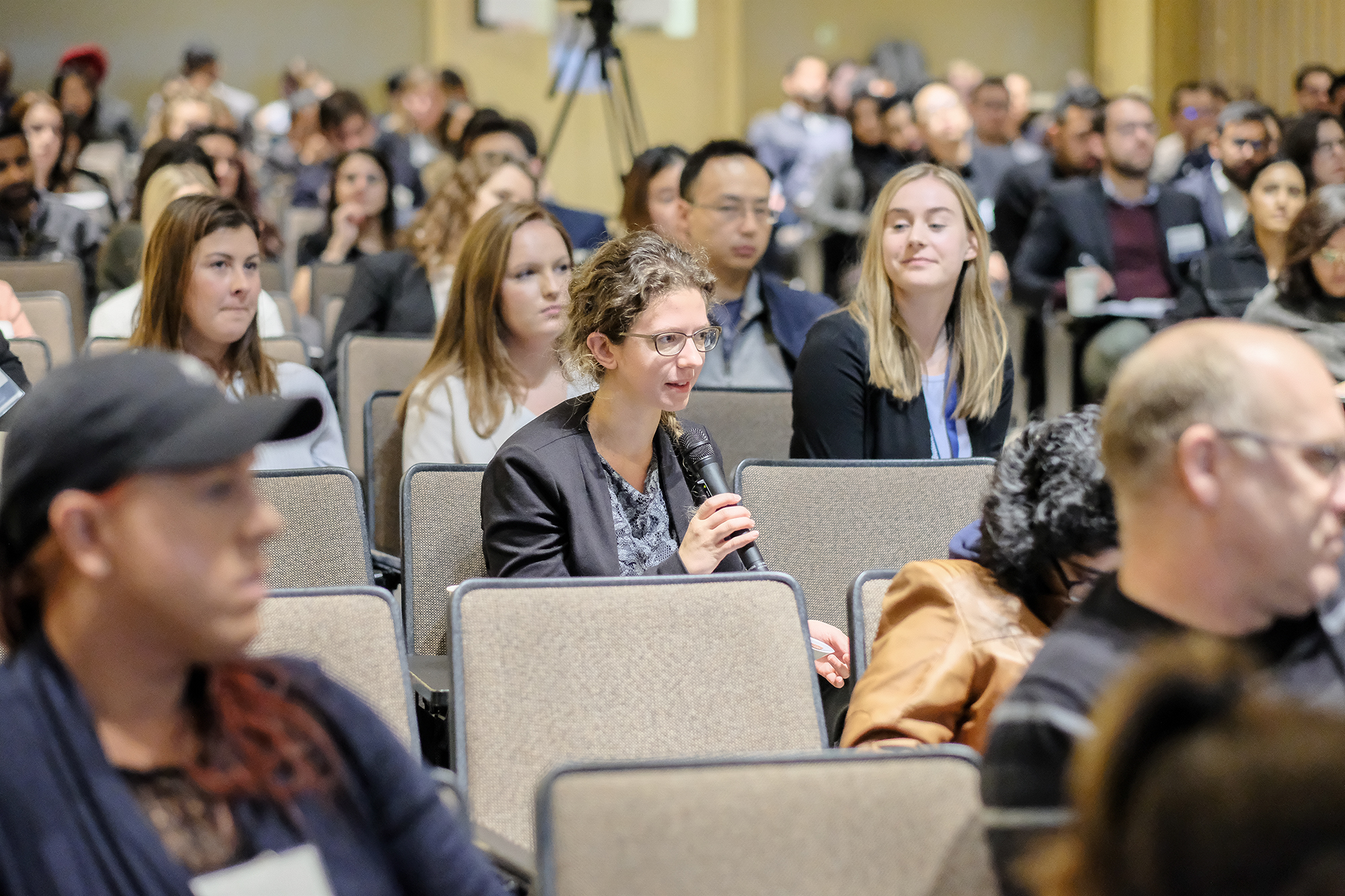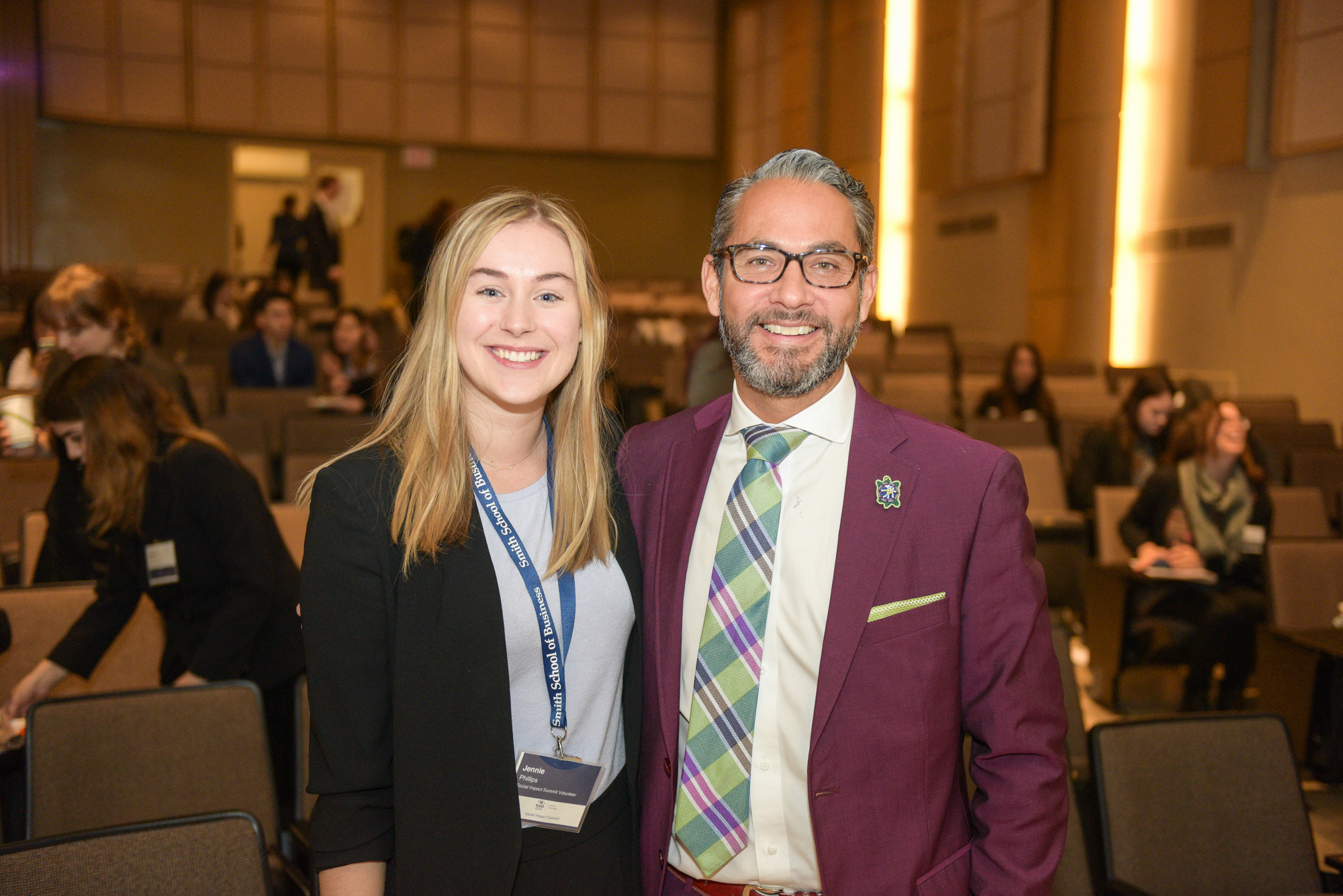14th Annual Social Impact Summit
October 16, 2018

Gwen Patrick asking question during a keynote presentation.

Jennie Phillips with JP Gladu
On October 12th and 13th, the Centre for Social Impact hosted its 14th Annual Social Impact Summit. Smith students interested in the world of social impact were treated to a diverse collection of keynote speakers, plenary sessions, panels, and workshops. Topics ranged from social impact staples like social finance and social entrepreneurship, to more unique themes like the role of Big Data and artificial intelligence in social impact, to pressing issues like Indigenous community development and climate change. The Summit also featured some of the amazing work that past Certificate students are currently up to.
Below, Yixuan (Michelle) Li, BCom 2019, describes some of her key takeaways from her experience at the Summit.
The future of data’s impact is up to us.
Data is both a source of worry and a medium to create change. During his keynote talk, Jer Thorp—artist, writer, and Innovator in Residence at the Library of Congress—explained that while we all live in data, and are used by data, data can also empower and engage us. Moreover, data can function as a democratic tool for fostering equality, but only if we can agree on a new shared definition for data, prioritize the wellbeing of people we collect data from, and communicate data in innovative ways, particularly in public spaces.
The contributions of Indigenous peoples in Canada are under recognized.
The horrific treatment of Indigenous peoples and Indigenous cultures throughout Canadian history is well-document. However, as JP Gladu—President and CEO of the Canadian Council for Aboriginal Business—notes, the significant contributions of Indigenous peoples to the Canadian economy continue to go unrecognized. In this way, supporting Indigenous-focused initiatives is not only the right thing to do from a moral standpoint, it is also a smart move from a business perspective. The Progressive Aboriginal Relations certificate, which confirms corporate performance in Aboriginal relations, is one avenue to do this.
Providing a solution to a real problem shared by many people is a proven way to build a successful socially responsible business.
According to Joanna Griffiths—Founder and CEO of Knix and Kinxteen—all that marketing theory learned in school is not the formula for a successful business. Rather, by focusing on the impact of business ideas and business decisions on stakeholders, companies can generate authentic respect from their customers, while improving brand perception, customer loyalty, and customer retention.
Artificial Intelligence is not necessarily the inevitable future of businesses.
A key message that arose multiple times in the AI knowledge building session was the fact that AI is a tool that should only be used when a business problem logically points to an AI-based solution. This goes against the widespread misconception that businesses need to catch up in this digital age by adopting AI at all costs. The ethical implications of AI are also countless despite efforts to regulate AI such as a European regulation called the GDPR. This is because implementation of regulations is near impossible in the digital world.
As in past years, the Summit provided students with practical skills and knowledge, connections to networks within the field of social impact, and inspirational stories. In this way, the Summit nourished both the “heart” and the “head” of Smith students looking to make a difference in their communities.
Thank you to our sponsors, guest speakers, panelists, and volunteers for making this such an incredible event!